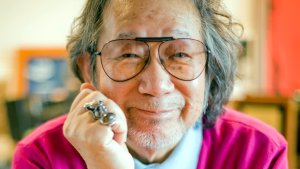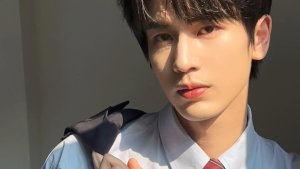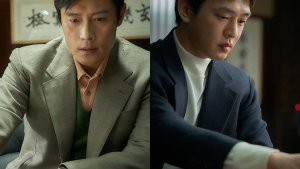 Cat-Loving Haruki Murakami and the Abundance of Movie Adaptations
Cat-Loving Haruki Murakami and the Abundance of Movie Adaptations
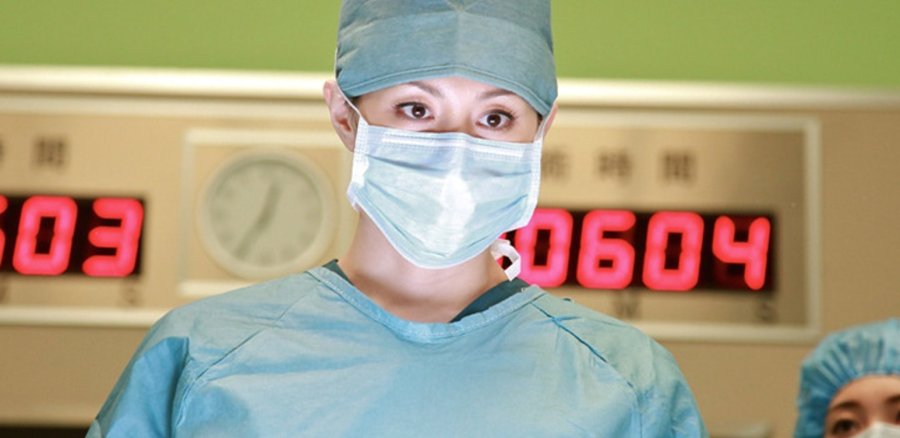
Disclaimer: This editorial contains spoilers for those who have not seen the drama. In addition, the writers refer to the names of the characters/actors by using their surnames first.
Medical drama, this 70-year-long genre is still going strong across the globe thanks to such TV shows as ER (1994-2009) or House M.D. (2004-2012). Even though most of the serials put more emphasis on drama instead of medical (such as Code Blue, Good Doctor, Romantic Doctor, Teacher Kim), there still exist exceptions from the rule. Instead of seeing doctors hopelessly falling in love, suffering through their miserable daily existence, and carrying the burden of their god-like profession, we can get to see epic action with a brilliant protagonist at the centre of the story. We are, of course, talking about the lone-wolf doctor, a freelancer who despises the herd mentality, authority, and institutional restraints. Her only weapons are her medical license and the skills she has acquired. Surgeon Daimon Michiko, also known as… Doctor X!
From the introduction of Chapter 7 "Hospital Drama: Reassurance, Anxiety, and the Doctor-Hero" in Rebecca Feasey's book Masculinity and Popular Television (2008), we can read the following: "Although the 1950s hospital drama was home to morally principled and caring male doctors, more recently, this image of infallible masculinity has been replaced by less exalted representations of the male. In fact, today's audiences are exposed to a large number of doctors who are not only tortured and tormented in their personal and professional lives but who are actually culpable for the deaths of their patients" (source). In her work, the researcher outlines the changing image of the Doctor-Hero figure in Western television shows. Medical dramas from the 1950s and the 1960s, such as Dr. Kildare (1961-1966) and Ben Casey (1961-1966), presented a doctor as the never-failing hero. He is the best physician with the necessary skills, he is always there for his patients, and he is not plagued by personal problems. Basically, he is the man of the hour. Does this description sound familiar to you?
Although this image of a doctor was gradually changed into that of a vulnerable and flawed person, especially in the West (*ER and House M.D. flashbacks*), we believe that Doctor X has its roots in these early, conservative medical dramas. It is our intention to prove that, in fact, Daimon Michiko is the ultimate Doctor-Hero.
Structure of the Show |
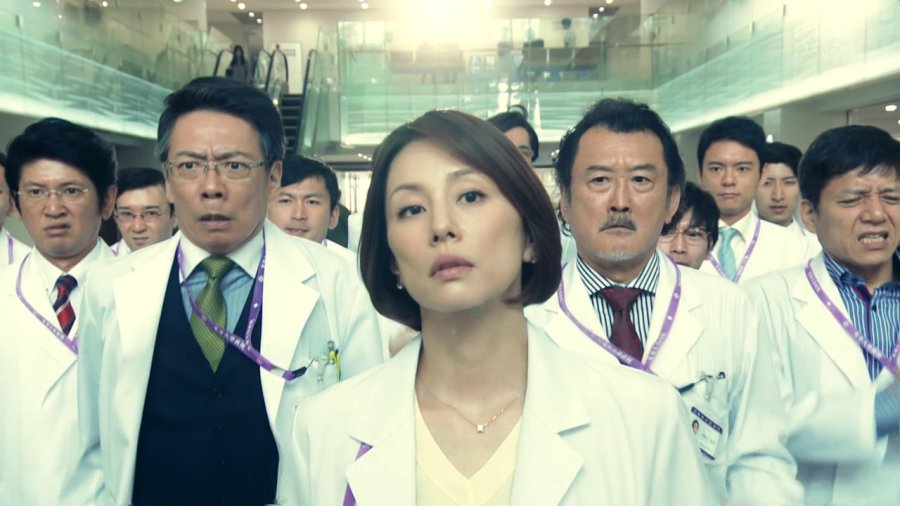
We know that die-hard fans already know this, but it's worth to recapitulate what exactly is going on in the show. So, the series follows the adventures of Daimon Michiko (Yonekura Ryoko), a freelance surgeon with a mysterious past (which is explained as the show progresses), who, in one way or another, ends up working at a prominent university hospital at the beginning of each season. As Daimon states in a CV, her specialty (as well as a hobby) is surgery, so saving a high-risk patient is the least difficult thing for her. The problem is the road leading up to the operating table. Daimon has to cut through a lot of red tapes, punch her way through political battles, and face physicians who are more concerned about their personal aspirations rather than patients' health. At the end of the day, Kanbara Akira (Kishibe Ittoku), Daimon's manager, always gives the Hospital Director a melon and a bill for her services.
Daimon is aided in her operations by freelance anaesthesiologist Jounouchi Hiromi (Uchida Yuki). When signing a contract at a new hospital, Daimon always says "itashimasen" ("I won't do it") with regard to performing all activities not related to the medical license. What is more, Daimon always battles a villain in each series (be it a Hospital Director or his direct superior) whom she ends up saving at the end of the day, because a patient is a patient; it does not matter if he/she is good or bad. In addition, when things go terribly wrong and mediocre surgeons express doubt about Michiko's expertise, she always triumphantly exclaims "Watashi, shippai shinai no de!" ("I never fail!").
Evidently, the show heavily relies on its structure, quite rarely veering off from established concepts in order to subvert expectations. Nevertheless, it is not drama's disadvantage by any means. The essential factors that make Doctor X work are interesting patients (in medical terms), lots of satirical humour ("Gyoi!!!"), action in the operating room, and Daimon Michiko herself. Now, let's go through each season of the drama:
Series 1 |
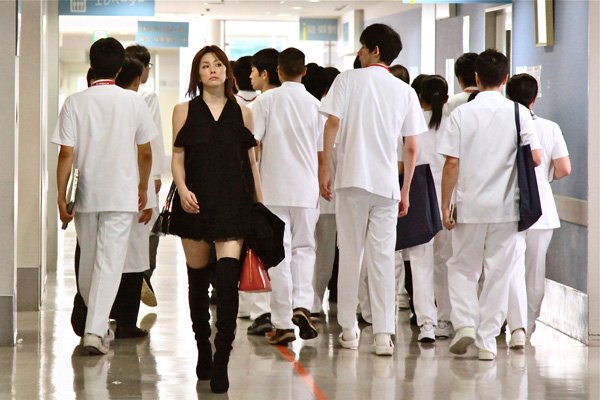
ReikaBleu: Season one may not be my favourite season, but it is definitely what hooked me in. I always thought "You rarely see a female doctor written to be as good as her." Deshou? Her skirt maybe mini (as she LOVES to wear short skirts) but her confidence and talent are definitely not (mini). This also introduced me to how dirty hospital politics can be. Do you also want to receive a box manju?
Ebisuno92: The series that started it all. I guess the writers themselves were not aware of the show's success because this season is significantly toned down in contrast to subsequent entries. Daimon is, of course, rebellious but not that outspoken. This is a good series, yet I find myself not revisiting it very often.
Series 2 |
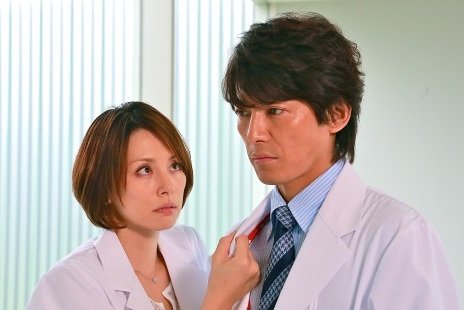
ReikaBleu: This season introduces you to some of the characters that you will see (or have seen) often as a regular cast. None of them really liked Daimon Michiko, but they always take the credit for her excellent surgical skills oh so willingly. It's been about 3 years since I saw this season.
Ebisuno92: Series 2 set the tone for future seasons. Everything seems better and bigger this time. Doctor X 2 marked the debut of Nishida Toshiyuki and Kenichi Endo in the roles of Director Hiruma and Ebina-sensei, respectively. Strangely enough, the only subplot I vividly remember is the one involving the NSFW relation between Kondo (Fujiki Naohito) and Director Mabuchi (Mita Yoshiko). My guess is that the writers wanted to show that corrupted doctors are really deranged.
Series 3 |
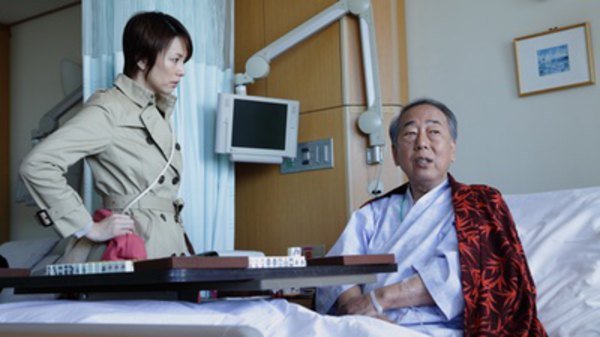
ReikaBleu: Ah! This is one of my favourite seasons! The doctors at the university hospital are starting to accept the fact that Daimon is a great surgeon. This season also allowed us to get a glimpse of Akira and Daimon's past and why they have such a tight relationship. It also showed us where the money Daimon earned is "going". The ending? Space-tacular. Haha!! Pun intended.
Ebisuno92: In Series 3, the show kicked into high gear. The villain character, Director Tendo (Kitaoji Kinya), scared the devil out of me. I especially like how the emphasis was put in this season on the Michiko-Akira relation. The finale was so heartbreaking!
Series 4 |
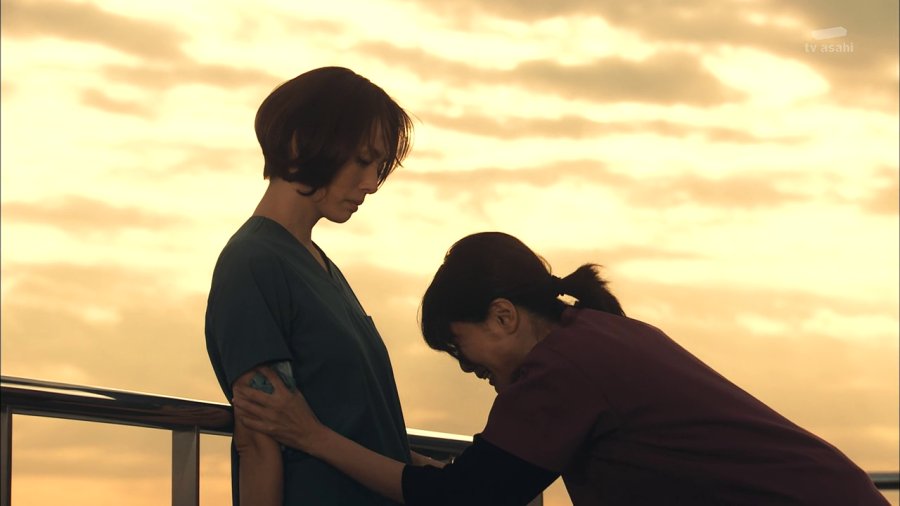 ReikaBleu: Ah, my heart! As I have mentioned in my super-duper-short review of Season 4, I never thought Daimon would love somebody this deep, aside from her love of Food, Surgery, and maybe Akira.
ReikaBleu: Ah, my heart! As I have mentioned in my super-duper-short review of Season 4, I never thought Daimon would love somebody this deep, aside from her love of Food, Surgery, and maybe Akira.
Ebisuno92: I was deeply convinced that the show could not top itself with the new season, but it did. The relationship between Michiko and Hiromi is the overarching theme of Series 4. I ship their pairing so much! Just look at that picture above. Michiko is standing steadfast like a samurai, trying to comprehend the life-threatening situation her friend has found herself in...
Series 5 |
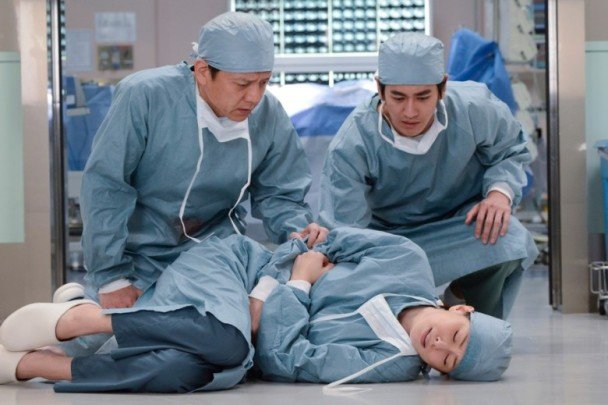
ReikaBleu: *SPOILER* Oh my goodness! This season, my emotions went on a roller-coaster ride. My favourite season by far! How do you operate on yourself? Dang! I loved how she noted everything that needs to be done for her own procedure. When she trusted the doctors at the hospital to do her surgery by teaching them, it was superb! I loved how these doctors helped her even though they mostly want her gone.
Ebisuno92: Just when I was sure that this series is going to be a letdown, Doctor X managed to surprise me yet again! It's really hard for me to choose my favourite season, but Doctor X 5 seems to be the most perfect one. Each episode is just top-notch across the board (the story focusing on Hara Mamoru (Suzuki Kosuke) made me cry so much!). I liked that fellow doctors finally started respecting Michiko instead of underestimating her as usual. Also, I loved that Michiko got into teaching residents! And the glorious finale! Yo nunca fallo!
Series 6 |
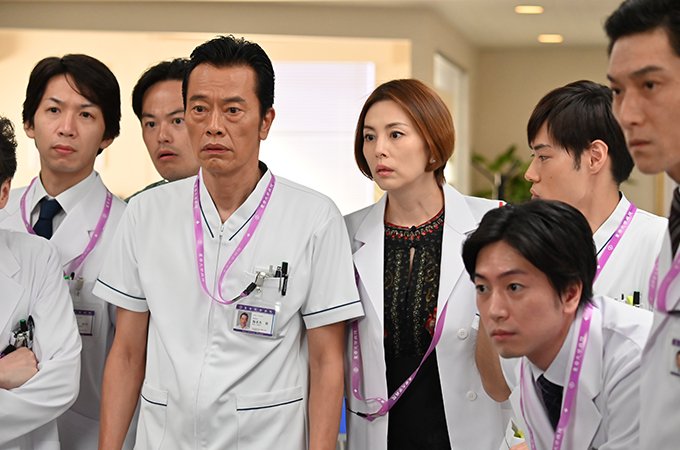
ReikaBleu: *SPOILER* This season is where I've seen Daimon super emotional. Though she was in Season 3, 4 and 5, Season 6 is where I saw her actually cry because of a patient. Also, I really thought that Nico-tan is going to be a good "friend", but he turned out otherwise. He's by far my favourite Hospital Director, even just for a while.
Ebisuno92: The latest (so far) entry in the series, but Daimon is still going strong in this one. It's great seeing her facing off against technological developments (are AI machines the real thing in university hospitals?) as well as the great Yusuke Santamaria and the brilliant Ichimura Masachika (Nicholas Tange is a badass!). I think I enjoyed the penultimate episode a bit more than the finale (which was still awesome).
Doctor-Hero in Action |
Coming back to Rebecca Feasey's text, the author claims in her conclusion that even though the image of the television doctor-hero changed throughout history, the physician's integrity remained unchanged. We cannot entirely agree with this statement. Who do you think is more heroic? A drug-addict trying to cut his leg open in a bathtub or a freelance surgeon who carefully planned her own operation (right before performing a procedure in excruciating pain on a guy who tried to destroy her)?
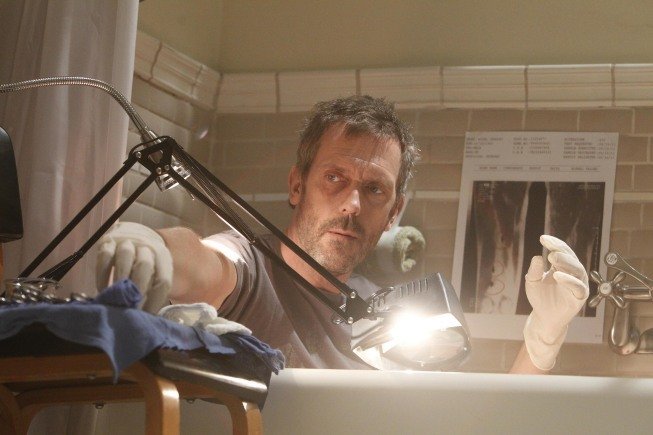 Self-curing: Beginner level | 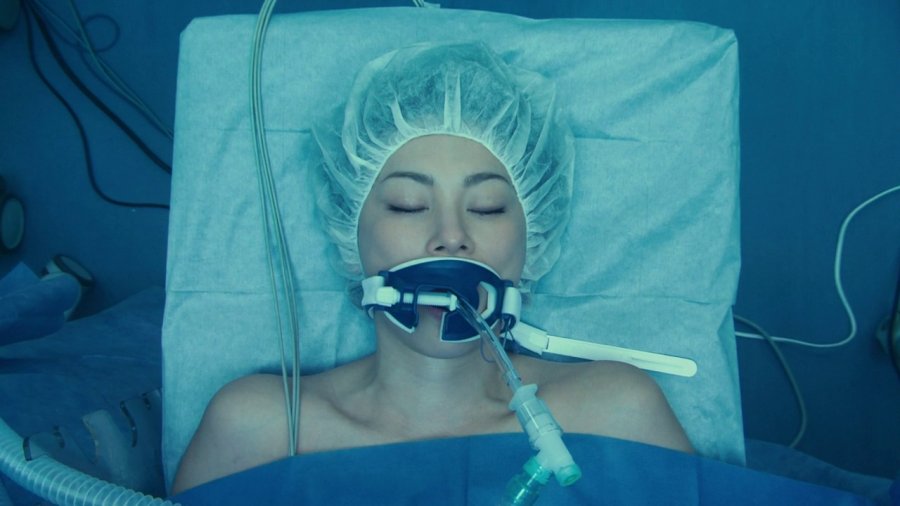 Self-curing: Expert level |
It's unfair that Doctor X is often compared to House M.D. Granted, both shows have challenging cases in each episode, but that's where the similarities end. House M.D. is about darkness and despair, whereas Doctor X focuses on hope and self-redemption (even for the supporting characters and villains). Just like Kildare and Ben Casey (not to be mistaken with Kanbara Akira's cat), Daimon Michiko is always there for the patients, marking them with her touch like a guardian angel.
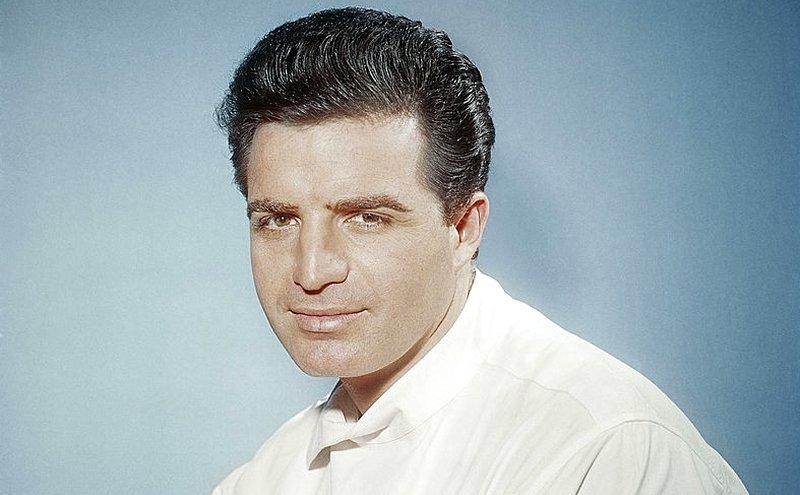 Ben Casey (1961) |  Ben Casey (2019) |
On top of all that, Doctor X is also a woman who does not need to be in a romantic relationship in order to rock the stage (though, we have to admit that Daimon's only true weakness is the love for food). With her attitude of the infallible doctor, she casts into the shadows not only masculine heroes but also American pretenders to the title of a medical drama heroine (*hiss of contempt at Grey's Anatomy protagonists*).
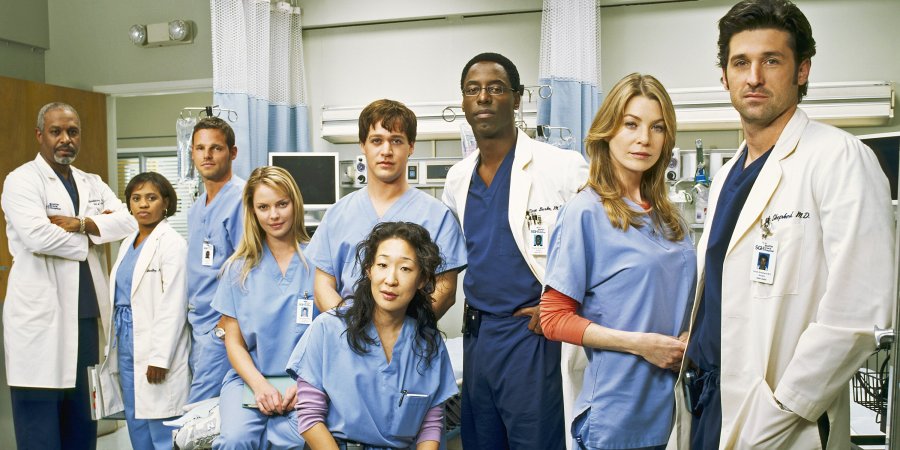 Wannabe doctors & wannabe friends | 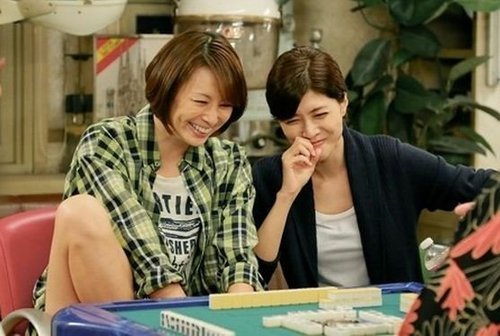 Real doctors & real friends |
Evidently, the Doctor-Hero would have been nothing without the mentor figure. Western (and Asian) shows are full of self-taught maverick doctors (like Doug Ross from ER or Aizawa Kousaku from Code Blue). How did they gain their knowledge? It is never explained. Daimon, on the other hand, does have a teacher since day 1 of her practice. Her special bond with Akira is the core of the drama. It is quite poetic seeing a brilliant doctor passing his knowledge to another one. Thankfully, Daimon also became a teacher (of sorts) in Series 5.
 A self-taught maverick (who occasionally fails). | 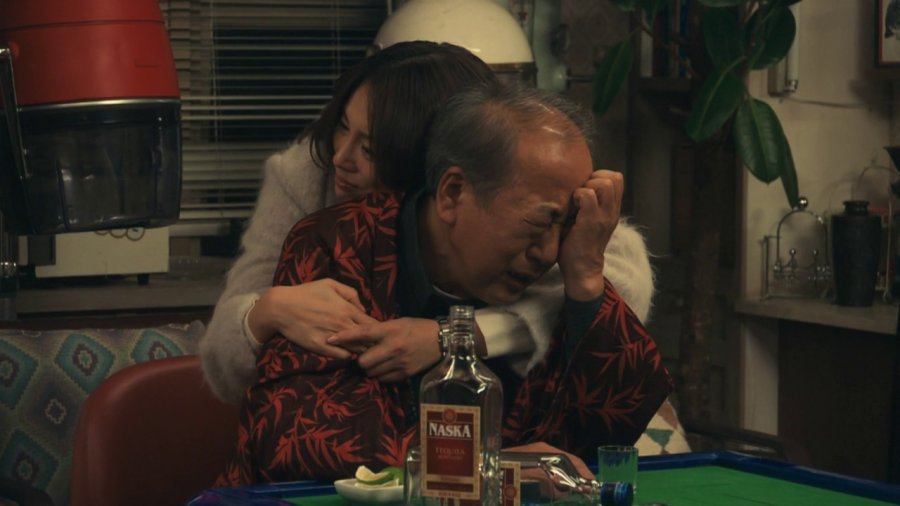 A student comforting her mentor. |
All of these factors amount to only one valid conclusion. Daimon Michiko-sensei IS the ultimate Doctor-Hero. In reality too concerned about portraying physicians as weak failures (just think about it, personal problems are always supposed to excuse their professional mistakes), Doctor X emerges as the reincarnation of conservative medics from the 1950s. She is the real ace who can save even the toughest case. Doctor X is the archetypal model of a healer to which all physicians should aspire.
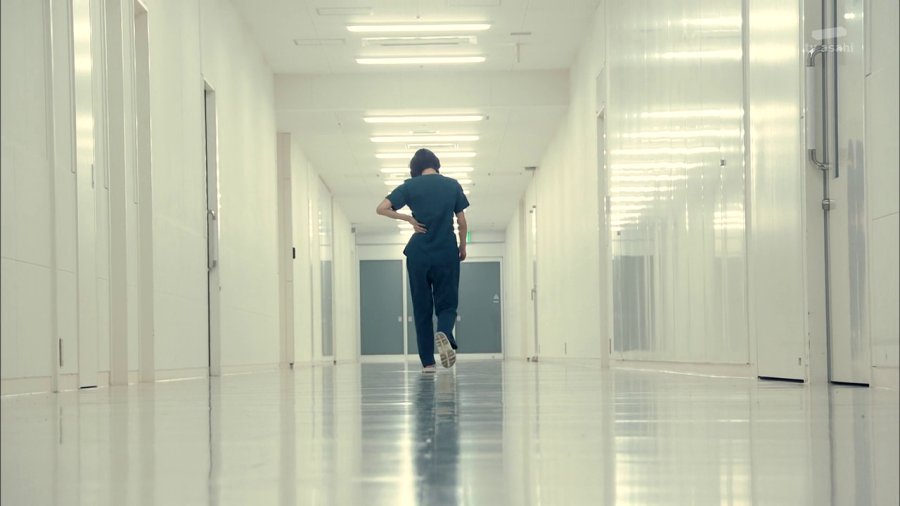
Personal fan round up |
ReikaBleu | Ebisuno92 | |
| Favourite series | 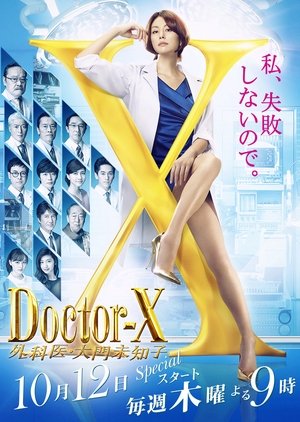 | |
| Favourite supporting character |  Hiromi Jonouchi Hiromi Jonouchi(Season 1-6) | 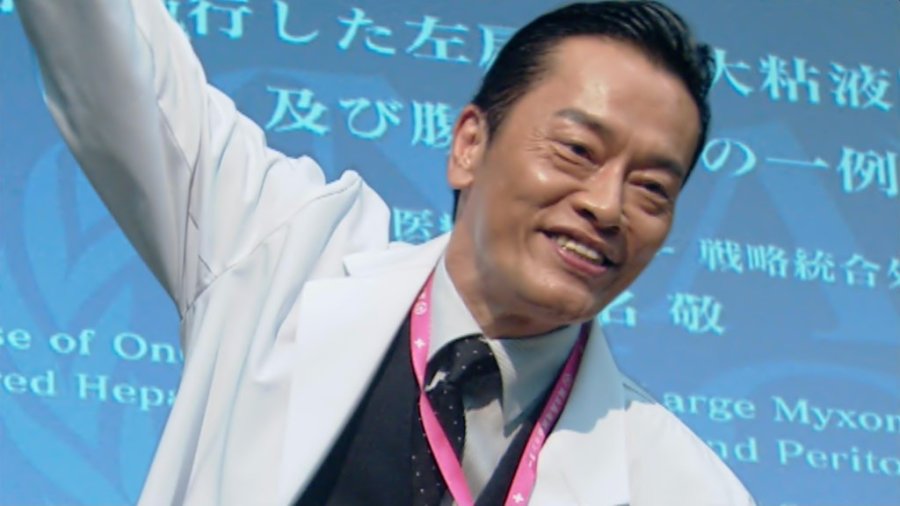 Ebina Takashi-sensei (Season 2-6) |
| Favourite villain | 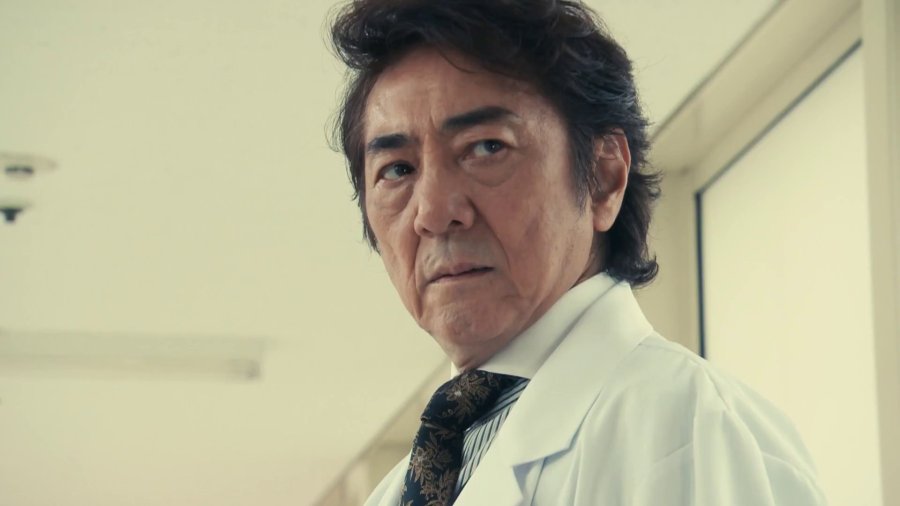 Nico-tan. lol. (Season 6) | 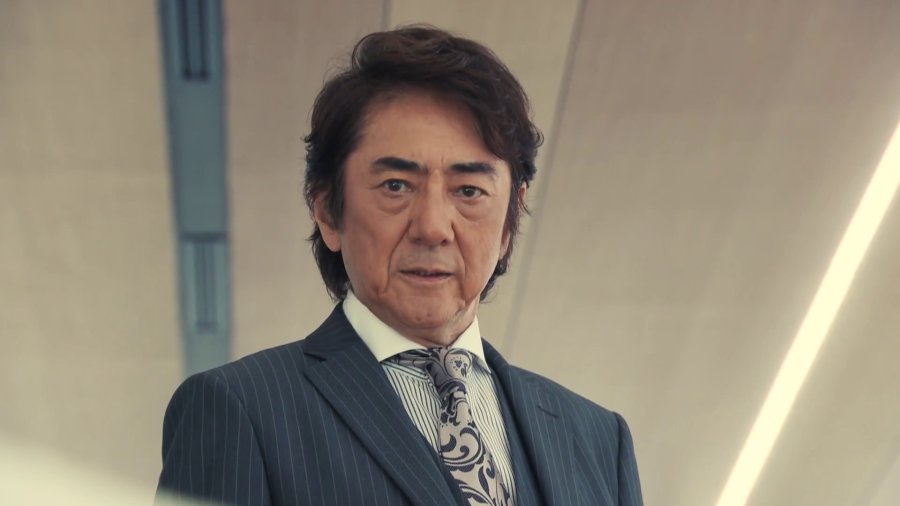 Nicholas Tange (Season 6) Nicholas Tange (Season 6) |
| Favourite episode | 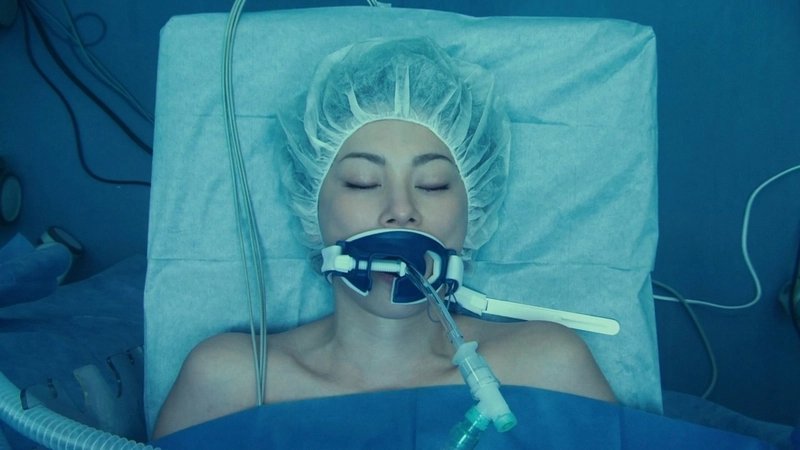 Season 5 Finale Season 5 Finale | 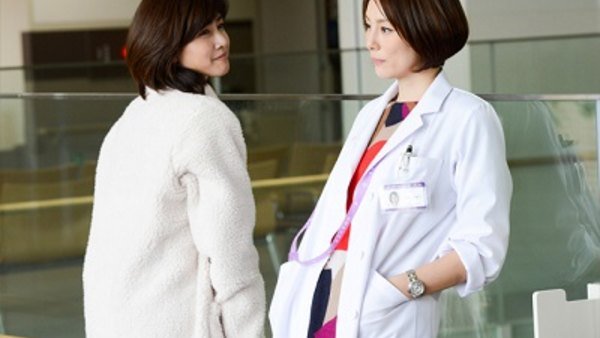 Season 4 Finale |
| Dream-come-true crossover | 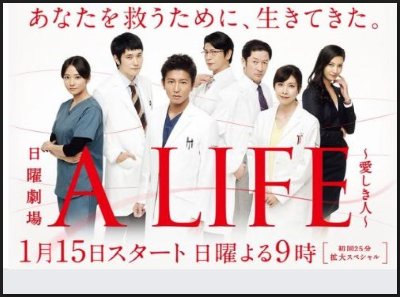 This is going to be a long shot, but I want to see Ryoko and Takuya Kimura together, so I would say A Life. This is going to be a long shot, but I want to see Ryoko and Takuya Kimura together, so I would say A Life. | 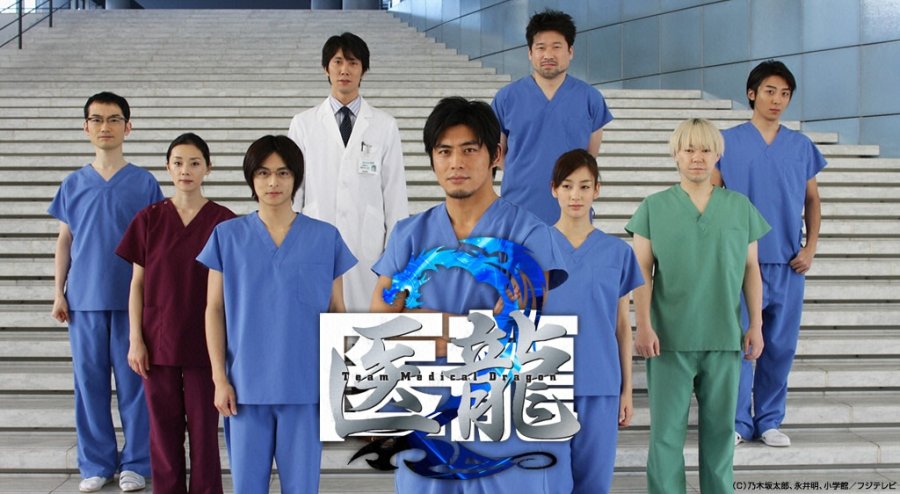 Daimon teaming up with Iryu: Team Medical Dragon to perform the most dangerous heart operation ever! Daimon teaming up with Iryu: Team Medical Dragon to perform the most dangerous heart operation ever! |
| Favourite catchphrase | Definitely, Watashi, Shippai Shinai No De. | Change and Challenge! (but Gyoi cracks me up as well). |
Trivia |
 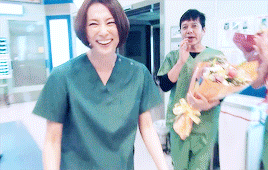  |
|
All things considered, Daimon Michiko-sensei is beyond any doubt the ultimate Doctor-Hero. If only she was a real person... Yonekura Ryoko-san! If you happen to read this (and we know you might because you have learned English), please do know that we love you! Please keep making Doctor X for as long as possible!

Sources: Masculinity and Popular Television (2008) by Rebecca Feasey * House Unauthorized: Vasculitis, Clinic Duty, and Bad Bedside Manner (2007) by Leah Wilson * Infallible Doctors: Japanese Medical Drama in Westernized Contexts (Conference Presentation by yours truly, Ebi) * 3 NETFLIX SHOWS from Japan to binge alone now * Asianwiki * Japanese Wikipedia.
ReikaBleu's Previous Articles: Currently Watching: Grand Maison Tokyo * 3 Reasons Why Kakegurui is a MUST Watch! * Smoking, Yay or Nay? * Let's appreciate: J-Movies and Dorama fansubbers! * Last Friends: Why I HATE and LOVE it * 10 Japanese Actors and Actresses that are also Seiyuus * 10 Japanese Movies, and Doramas I wished had another season * Five Japanese Actors and Actresses with Filipino Heritage * Currently Watching: BG ~Personal Bodyguard~ * A Stalker's Guide to Takuya Kimura (2018) * Takuya Kimura's Hair Style Evolution * Why You Cannot Not Love Kimura Takuya.
Ebisuno92's Previous Articles: The Power of Transformation: Celebrating 45 Years of Super Sentai * “Come on over, Spiritual Phenomena!” TRICK, A Franchise Retrospective * From Best Korea with Love: An Introduction to North Korean Dramas & Movies (with Seonsaeng) * Cursed Cassettes, Countdowns, and Corpses: A SFW Guide to the Ring Series * Blast from the Past: Did Bayside Shakedown Destroy Japanese Cinema? * Weekend Recommendations: Father Knows Best * Godzilla’s on the Loose: 65 Years of Kaiju Rampage * An Ultra Fan's Guide to Yeoh Michelle * Blast from the Past: A Guide to “Girls with Guns” Genre * Weekend Recommendations: Old School Movies * Ebisuno92's Weekend Movie Picks.
So this was our ride through Doctor X series.
Have you seen the drama? Please share your thoughts in the comments.
Thank you for reading!
Edited by: Yuanwei (1st editor), BrightestStar (2nd editor


